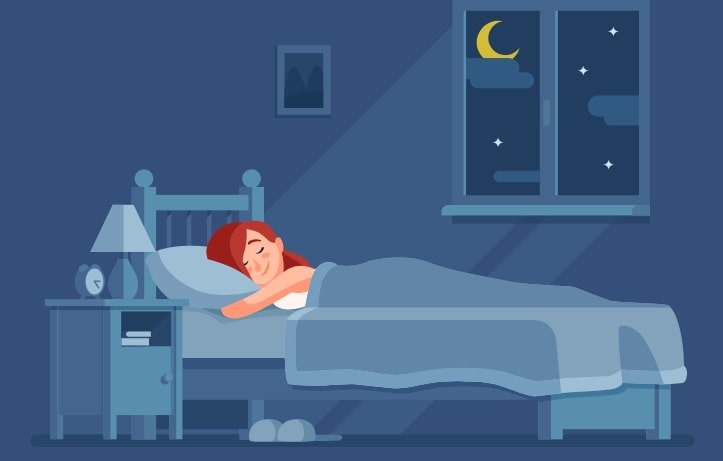
- For as long as we have been alive, we've all had dreams, even though we don't remember some.
- The confusing part of dreams is the interpretation behind each one, as each generation has changed these.
- From curbing cravings, sleeping paralysis and dreams to being a form of therapy, here are eight things you need to know about them.
Dreams are pretty weird things. You might be fighting zombies one night and then traipsing off to Paris the next with a good-looking stranger by your side.
Some nights, you may even be fighting zombies in Paris with a good-looking stranger. Dreams can take us outside of our everyday world, but do we actually understand how they work?
Here are eight facts we bet you didn't know:
1. DREAMS ARE A MASH-UP OF YOUR MEMORIES
Sometimes you dream of people you know, but other nights you see complete strangers … or so you think. Researchers from Harvard Medical School found that dreams come from our unconscious experiences, our implicit memories.
According to sleep expert Robert Stickgold, dreams consolidate these experiences without interference from pesky things like real life.
READ MORE | Are you ruining your relationship while you sleep? Study shows how snoring can affect your love life
2. DREAM TIME CAN HELP CURB CRAVINGS
While we all know we burn kilojoules even when we're sleeping, researchers from Columbia University have found if you have more dream time, you'll end up craving less fatty or carb-laden foods during the day.
The study showed when participants only slept four hours a night, their metabolism slowed right down, and they consumed a lot more carb-heavy foods, such as pasta.
3. EVERYBODY DREAMS
You might think you don't dream at all, but it's more likely that you just don't remember. We have our craziest dreams when we're in deep sleep known as rapid eye movement (REM).
But REM only accounts for 20% of our sleep, and even those with an impeccable dream recall can only remember a few minutes.
READ MORE | Newlyweds say sleeping in separate rooms has increased their intimacy - 'His snores are too loud'
4. DREAMING IS A FORM OF THERAPY
It's long been thought we dream to release unpleasant or unnecessary memories.
However, Stickgold believes dreams help us sort through our thoughts and feelings to improve our performance and mindset, kinda like decluttering a messy wardrobe.
5. NIGHTMARES ARE A GIRL THING
According to a study from the University of the West of England, women are more likely to have nightmares than men. Why? Thanks to Mother Nature, our hormones fluctuate during our monthly cycle, and this affects our body temperature. And a high temperature means scary dreams.
READ MORE | Jameela Jamil loves wearing a bra while she's sleeping
6. THEY CAN ACTUALLY PARALYSE YOU
Have you ever woken up in the middle of the night unable to move? Researchers from the University of Toronto found our brain works overtime to accommodate dreams during REM.
As a response, neurotransmitters kick in and switch off our body's movement to prevent us from causing ourselves injury in particularly vivid dreams.
There's no need to start panicking, though. Only one to two per cent of people experience sleep paralysis regularly, and it's only temporary - most people snap out of it within a few seconds.
7. DREAMING ISN'T ALWAYS FUN
Did you know anxiety, fear and surprise are the most common emotions we experience when we dream? Psychologist Calvin Hall collected more than 50 000 dream accounts over 40 years and found we have a lot more negative dreams than positive ones.
Your fears and experiences result in dreams like turning up to an event naked or your teeth falling out.
READ MORE | Camila Cabello's best beauty tips are to avoid stress and get enough sleepDo you have anything to tell us? Tell us your story here.
8. SLEEPING CAN MAKE YOU FITTER
Do you equate sleep with laziness? Turns out that if you get more REM, you'll actually perform better physically. Researchers at Stanford University asked a basketball team to try to increase their sleep time to a minimum of 10 hours a night over several weeks.
By the end of the study, most players had shaved time off their sprints (16.2 seconds compared to 15.5 seconds) and had improved their shooting accuracy by 9%. That's one slam dunk for sleep!



 Publications
Publications
 Partners
Partners











